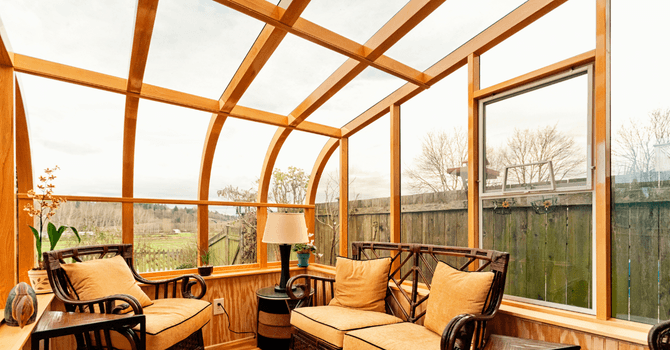
A sheet metal roof might sound absurd to some, but this material is quite popular for those searching for a long-lasting and strong overhead cover. In recent years, sheet metal roofing has been recognized for its durability and longevity. Unlike asphalt, which has a lifespan of between 20 and 30 years, sheet metal can last up to 50 years. Therefore, installing this roofing material is a worthwhile, lifetime investment!
But how difficult is the installation process? Of course, finding your way onto the roof is one thing but getting sheet metal to stay in place is another. Luckily, you’ve come to the right place for all the tips, tricks and steps to installing a sheet metal roof. Read on to discover everything you need to know about installing the right sheet metal roofing for your home!
Preparation

source: Pixabay
Installing a sheet metal roof is not the easiest project, but for those interested in taking it on themselves, we can help guide you. You’ll need a few familiar tools for this project, including a drill, hammer, rubber mallet, tape measure, a ladder, roof stripping tools (if necessary), specific sheet metal screws and nails, as well as a roof underlayment material such as felt.
Before beginning this installation, you’ll need to measure your roof to determine the distance that exists between the ridge and eave of the roof. When measuring, make sure to determine the amount of overhang you want from the sheet metal roofing itself. Further, measure the width of the roof, and divide this number by 3 as the results will give the number of panels that you’ll need.
If you haven’t done so already, order your steel roofing panels by giving your roofing measurements to the manufacturer or distributor. The panels themselves are often called standing seam metal roofing, and these can come in a variety of colours.
Initial steps
Most experts recommend applying a radiant barrier of insulation for improved energy-efficiency or another form of roofing underlayment such as a breathable synthetic or felt. Start by installing this to help keep moisture out. This layer will also help to avoid mould or mildew from growing beneath the sheet metal, potentially causing serious problems later.
If you have old shingles on the roof, you can leave these in place and install sheet metal roofing overtop of them. Next, lay batten boards, or pine boards, over the roofing felt. The boards should run parallel with the ridge and the eaves, and a drill can be used to screw the board into the roof.
Now, you’ll want to install the eave flashing, as this will help to control the flow of water from the roof to the ground. You can use a hammer and nails to simply attach eave flashing to the eaves. Install the flashing along the entire width of the roof. Further, if the roof has gutters, the eave flushing should cover over each of the gutter's sides.
Finally, apply closure strips to the eave flashing. These will work to close gaps between the sheet metal roofing panels and the underlayment, as animals and pests can find their way inside and cause serious havoc.
Installing the sheet metal roofing

source: Pixabay
Now that all the initial prep work has been completed, it is time to install the roof pieces themselves. Start with the first panel and place it along the edge of the roof, allowing the bottom edge of the panel to hang ¾ of an inch over the side of the roof. Screw the panel down onto each board. Lay the second panel alongside the first panel, making sure that the high ridges running along the length of the second panel overlap the ridges on the first panel.
You can secure the second panel into place by screwing it into the first panel. Repeat this process with all remaining panels until the entire roof has been covered. Following the installation of the panels, set up the gable trim, giving the roof's edges a smooth appearance. Apply a thin line of butyl tape, and this sealant should be applied along the side edges of the roof.
Screw the gable trim over the side edge of the roof, and continue this installation on all edges. Lastly, the ridge cap will need to be applied. Again, use butyl tape applied in a thin line along the ridge of the roof and place foam closures over this. Apply a second layer of butyl tape, this time over the edges of the foam. Now, you’ll attack the ridge cap, placing it over the roof and secure it in with evenly spaces screws.
Get 3 renovation quotes for your sheet metal roofing project
RenoQuotes.com can help you get quotes for. By submitting your sheet metal roofing project to us, we’ll put you in contact with top-rated contractors. Fill in the form on the homepage (it only takes a few minutes), and you will get estimates from trusted professionals
Dial 1-844 828-1588 to speak with one of our customer service representatives
Looking for something else?
Related articles
The latest industry news, interviews, technologies, and resources.
Editorial Team
•08 Nov 2023
Have you heard of the cantilever extension? This term isn’t common for the average person, but if you work in the field of renovations, you’re likely familiar with it.

Karine Dutemple
•08 Nov 2023
Any amateur or professional landscaper will love shrubs, which have a remarkable number of advantages. Whether they are appreciated for their ability to enhance the façade of a house or for their ability to create an area away from prying eyes, they are always a sure bet.

Editorial Team
•07 Aug 2025
Bringing to fruition an entrepreneurial endeavour doesn’t solely contribute to the province’s employment rate, it's an accomplishment that rewarding on both professional and personal levels. This is all the more true if you’re operating in the construction industry, an all-important sector in Quebec’s economy, encompassing numerous professionals and trade groups.

Editorial Team
•03 Dec 2024
A sunroom is an area that’s conducive to rest and relaxation. However, don’t read too much into the name, it can very well be used beneficially either during the summertime or wintertime, day or night. On top of increasing the resale value of your house, a sunroom means adding an enclosed space on your property to prolong those beautiful, warm days.

Editorial Team
•22 Jan 2026
Choosing a Lennox heat pump means investing in a balance of energy efficiency, durability, and year-round quiet comfort, whether you live in Ontario, the Prairies, Atlantic Canada or British Columbia. This American brand is well established across the Canadian market and is known for the reliability of its systems, the quality of its components, and strong performance in a wide range of climates.